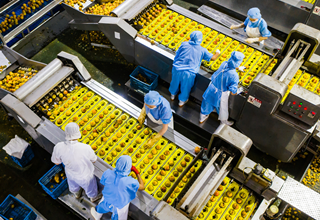Expert interprets COVID-19 family cluster cases in Tianjin
Tianjin officials have released details to local press about a ‘family cluster’ of COVID-19 cases, and provided suggestions of how to prevent and control such cluster outbreaks.
As of February 16, Tianjin had reported 26 family cluster epidemics which are characterized by the following three features:
Compared with other kinds of cluster epidemic, the family epidemic spread is more rapid. It has been established that when the first case of a family begins to show symptoms, the other infected family members will develop the disease on average three days later, while the average interval in other collective contagions is seven days.
Gathering serves as a major means of transmission among family members. Of the 26 family cluster epidemics, 10 were caused by having get-togethers.
A high secondary attack rate is recorded. 50 percent of the 26 family cluster epidemics have two or more second-generation cases, with the highest number of such cases reaching five. In addition, there were four second-generation cases, on average, in families with multiple gatherings.
To avoid a family cluster epidemic, close contacts of confirmed COVID-19 cases need to go to their local central quarantine area instead of self-quarantining at home. Central quarantine provides single-room isolation which can more effectively prevent transmission.
Those under home-based quarantine after epidemiological investigation shall:
1.undertake single-room quarantine;
2. reduce contact with family members. If the contact is necessary, wear a mask and keep a distance of more than one meter. During the quarantine, masks, tissues and other waste items shall be thrown in special garbage bags and uniformly disposed of by related administrative personnel.
3. have dinner separately to family members to avoid sharing dining utensils and other items; use a separate toilet, otherwise it is necessary to stagger toilet times and disinfect the toilet after use.
4. keep their family members away from the isolation room, where items shall be disinfected and then washed before they are touched.
5. open windows to help with ventilation at least twice a day, 30 minutes each time.
6. clean and wipe items down with clean water every day. Disinfect and clean door handles and the surface of the toilet according to the instructions of community health personnel.
7. monitor their health conditions regularly as required during medical observation; make contact with the person in charge of community medical observation and seek timely treatment in case of fever, cough and other symptoms.
Precautions for families
1. Avoid gatherings with families, friends and neighbors - as well as group meetings - during the outbreak.
2. Avoid going to densely-populated and poorly-ventilated public places.
3. Wear a mask when going out. Wear a conventional medical mask when going to crowded public places or taking public transportation, and a surgical mask is needed when going for medical treatment, including visiting a fever clinic.
4. Open windows to help with ventilation at least twice a day, 30 minutes each time.
5. Keep your hands clean. Try not to touch objects and equipment in public places.
6. Keep good hygiene and health habits. Wash hands, disinfect and clean frequently, and make sure that food is well cooked. Do not share towels and cups with family members, and keep your home and tableware clean.
7. Monitor health conditions of the whole family and measure body temperature when feeling feverish. Prepare a thermometer, face masks and domestic disinfection and other supplies at home. Throw discarded masks in special dustbins.
8. Wear a mask and visit the fever clinic of a nearby hospital in case of suspicious symptoms like fever, cough, pharyngalgia and feebleness. Try to avoid taking the subway, bus and other public transportation. Inform the doctor of your recent history of travel to epidemic areas, and who you have met since you were infected. Cooperate with the health departments during relevant investigations.

Copyright © Tianjin Municipal Government.
All rights reserved. Presented by China Daily.
京ICP备13028878号-35



